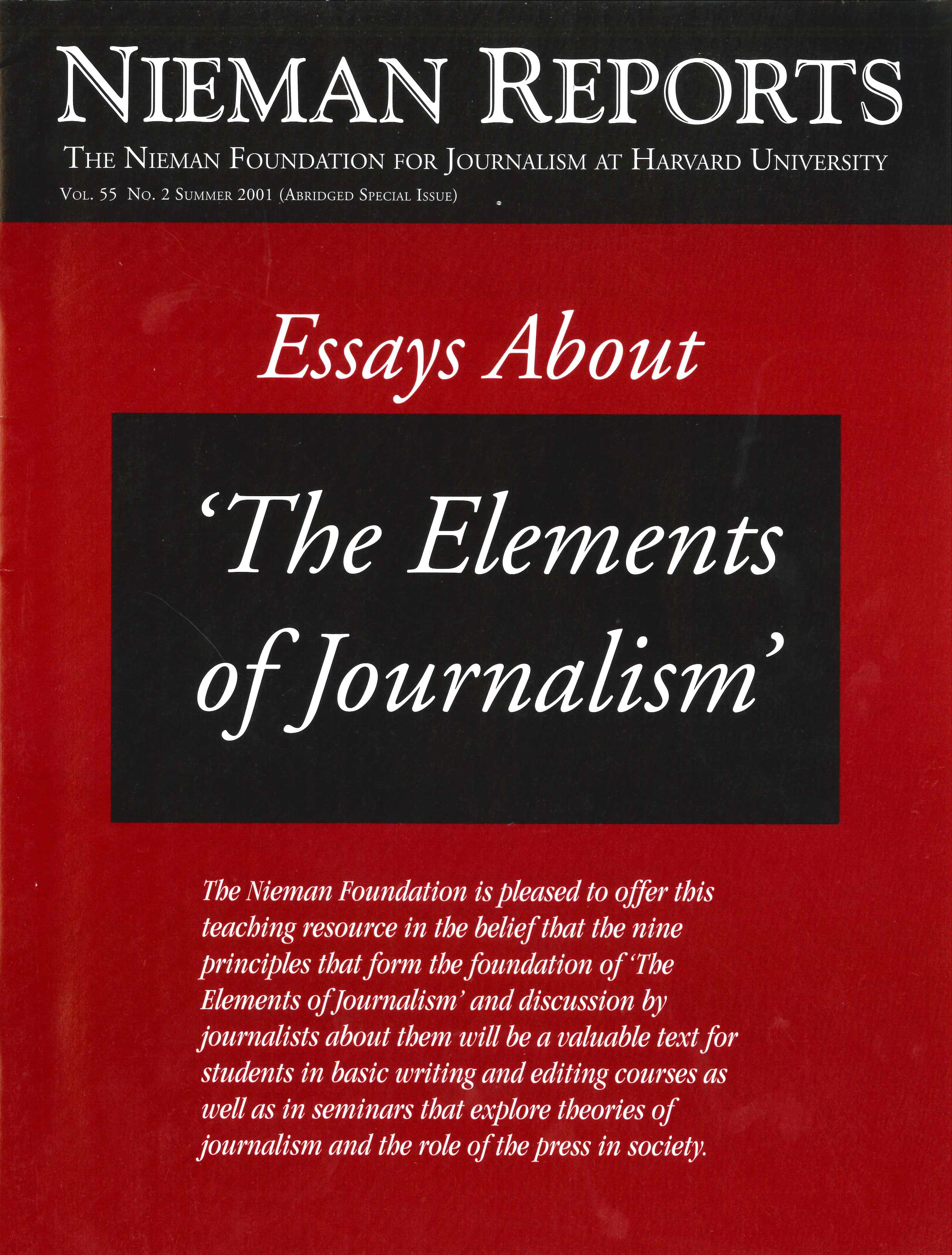“In the end, the discipline of verification is what separates journalism from entertainment, propaganda, fiction, or art…. Journalism alone is focused first on getting what happened down right….
Perhaps because the discipline of verification is so personal and so haphazardly communicated, it is also part of one of the great confusions of journalism— the concept of objectivity. The original meaning of this idea is now thoroughly misunderstood, and by and large lost. When the concept originally evolved, it was not meant to imply that journalists were free of bias. Quite the contrary…. Objectivity called for journalists to develop a consistent method of testing information—a transparent approach to evidence—precisely so that personal and cultural biases would not undermine the accuracy of their work…. In the original concept, in other words, the method is objective, not the journalist. The key was in the discipline of the craft, not the aim.
The point has some important implications. One is that the impartial voice employed by many news organizations, that familiar, supposedly neutral style of newswriting, is not a fundamental principle of journalism. Rather, it is an often helpful device news organizations use to highlight that they are trying to produce something obtained by objective methods. The second implication is that this neutral voice, without a discipline of verification, creates a veneer covering something hollow. Journalists who select sources to express what is really their own point of view, and then use the neutral voice to make it seem objective, are engaged in a form of deception. This damages the credibility of the whole profession by making it seem unprincipled, dishonest, and biased. This is an important caution in an age when the standards of the press are so in doubt….
A more conscious discipline of verification is the best antidote to the old journalism of verification being overrun by a new journalism of assertion, and it would provide citizens with a basis for relying on journalistic accounts. …we began to see a core set of concepts that form the foundation of the discipline of verification….
- Never add anything that was not there.
- Never deceive the audience.
- Be transparent about your methods and motives.
- Rely on your own original reporting.
- Exercise humility.
The willingness of the journalist to be transparent about what he or she has done is at the heart of establishing that the journalist is concerned with the truth…. Too much journalism fails to say anything about methods, motives, and sources.”



